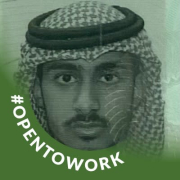

VMware vSAN and VxRail compete in the hyperconverged infrastructure market. User feedback gives VxRail an edge due to its seamless integration and advanced features, making it more favorable for VMware users.
Features: VMware vSAN is appreciated for scalability, cost-effectiveness, and efficient storage policies, offering benefits like vMotion and Distributed Resource Scheduler. It works well with commoditized hardware, providing easy management and impressive performance. VxRail, on the other hand, is noted for comprehensive performance and streamlined integration, particularly for VMware environments. Its advanced automation tools and ease of deployment make it a preferred choice for simpler integration into existing systems.
Room for Improvement: vSAN users report limited deduplication and encryption, wanting better monitoring, hardware compatibility, and stability. They seek more protocol support and customization for improved usability. VxRail users mostly praise performance but suggest support scalability and cost enhancements, alongside smoother VMware update integration.
Ease of Deployment and Customer Service: Deploying vSAN is praised for its simplicity and cloud compatibility, but technical support responsiveness needs improvement. VxRail offers a unified deployment with reliable, immediate support, crucial for implementation, though installation may involve complex coordination in large deployments.
Pricing and ROI: Pricing is critical; both solutions are costly. vSAN attracts scrutiny for licensing costs, increasing with scale, despite reducing hardware needs and IT costs long-term. VxRail's pricing, though high, is more predictable in financial planning, offering clear ROI through reduced operational costs and better infrastructure efficiency.
Starting with a smaller infrastructure and scaling as required allows us to save costs initially.
I have seen a return on investment; it's satisfactory in the long run.
I would rate their support nine points.
I am not satisfied with VMware support, particularly with the reaction times, SLAs, and those kinds of issues.
Sometimes the issue is that you don't get the best experience, whether it's the response time or first-level support quality.
A key area for improvement for VMware would be response time.
Dell has good technical support in Saudi Arabia.
The support is all provided by Dell, and it is quite good.
It supports up to 64 nodes in a cluster, allowing us to add nodes and expand the cluster as needed.
If you have already bought it, you need specific servers, and it is easier with a SAN.
There are limitations, such as the inability to upgrade from a single to dual CPU in certain configurations.
Scalability is easy with VxRail.
Scalability is good with VxRail.
In terms of stability, I give VMware vSAN nine points.
From my perspective, I would rate VMware vSAN's stability as extremely high, perhaps a nine.
It is a very stable and mature product, with centralized management and upgrades being perfect for us.
The product is very stable, and I rate its stability as nine out of ten.
A proper monitoring tool that encompasses both applications and infrastructure would help in quickly resolving issues.
I have recently used Nutanix, and I observed that Nutanix provides better performance than VMware vSAN due to its data locality features.
Discussing the pricing model is significant as Broadcom creates many discussions worldwide regarding pricing.
It requires a very clean environment to proceed without issues.
VxRail could be enhanced through additional integration with NVMe technology.
The major issue with VxRail is the razoring process, which can only be performed by Dell.
This has resulted in a slight cost increase.
Previously, the cost was higher, however, recent changes in VMware pricing have reduced it.
The cost varies for us as a large company because we receive special offers from Dell.
Purchasing VxRail is quite expensive compared to a simple Dell server.
Hot add features are available by default in vSphere, allowing us to immediately increase memory, CPU, and hard drive without any downtime.
The performance is excellent, handling workloads better than direct-attached or legacy storage solutions.
The VMware vSAN feature that has had the greatest impact on operational efficiency is the basic software-defined storage functionality.
Customers prefer the single pane of glass management and integration with VMware, which makes it easier for them to proceed with decisions involving VMware products.
The most valuable feature of VxRail is the VxRail Manager, which centralizes resources like storage built with vSAN.
The features of VxRail that we find most useful for our customers include the easy update mechanism and the support for both VMware and hardware.
| Product | Market Share (%) |
|---|---|
| VxRail | 13.8% |
| VMware vSAN | 11.4% |
| Other | 74.8% |




| Company Size | Count |
|---|---|
| Small Business | 100 |
| Midsize Enterprise | 58 |
| Large Enterprise | 129 |
| Company Size | Count |
|---|---|
| Small Business | 42 |
| Midsize Enterprise | 43 |
| Large Enterprise | 56 |
VMware vSAN is a software-defined storage product that is used in collaboration with VMware ESXi hypervisor and that provisions and manages storage based on policies, regardless of the underlying hardware. The solution enables you to prime your business for growth through its seamless evolution (it is integrated with vSphere and requires no new tools), its flexibility, and its multi-cloud capabilities. As an industry-leading software, VMware vSAN provides high levels of performance with minimal impact on CPU and memory.
VMware vSAN Features
VMware vSAN has many valuable key features. Some of the most useful ones include:
VMware vSAN Benefits
There are many benefits to implementing VMware vSAN. Some of the biggest advantages the solution offers include:
Reviews from Real Users
Below are some reviews and helpful feedback written by PeerSpot users currently using the VMware vSAN solution.
PeerSpot user Yves S., CEO, Cloud Evangelist at Comdivision Consulting GmbH, says, “vSAN gives us a lot of advantages when we need to expand resources. We have an overall larger host infrastructure, and we split that up for specific customer test and use cases. In that specific scenario, we can easily add more hosts or reduce the number of hosts in the environment.”
A reviewer who works in Infrastructure Security explains, “The ease of use is great. The initial setup and upgrade process was pretty straightforward. And, technical support is great.”
Laurent N., Director at Softlogic, comments, "The feature that I have found most valuable is that it is easy to deploy. It is easy to create and delete virtual servers. It is easy to create the load balancing and the clustering."
VxRail is a hyper-converged infrastructure appliance co-engineered by Dell Technologies and VMware, designed to optimize VMware environments by simplifying compute, storage, virtualization, and management.
Built on VMware vSAN software, VxRail ensures high performance, reliability, and flexibility. It supports a broad array of workloads, from business-critical applications to next-generation use cases. VxRail simplifies infrastructure management with powerful integration and seamless scalability, offering centralized management and user-friendly interfaces. Streamlined updates, robust lifecycle management, and one-click upgrades facilitate a user-centric experience that minimizes deployment complexity and staffing needs. However, its performance with disk deduplication, integration with public clouds, and processor support can be enhanced, along with pricing and licensing improvements.
What features define VxRail?Organizations across sectors such as finance, telecommunications, education, and manufacturing utilize VxRail for its scalability, ease of deployment, and infrastructure management capabilities. It aids in server and application hosting, storage, and virtualization management, often employing VMware integration. The platform is valued for its ability to consolidate IT components, support VDI solutions, and enhance cloud readiness and resource allocation.
We monitor all HCI reviews to prevent fraudulent reviews and keep review quality high. We do not post reviews by company employees or direct competitors. We validate each review for authenticity via cross-reference with LinkedIn, and personal follow-up with the reviewer when necessary.